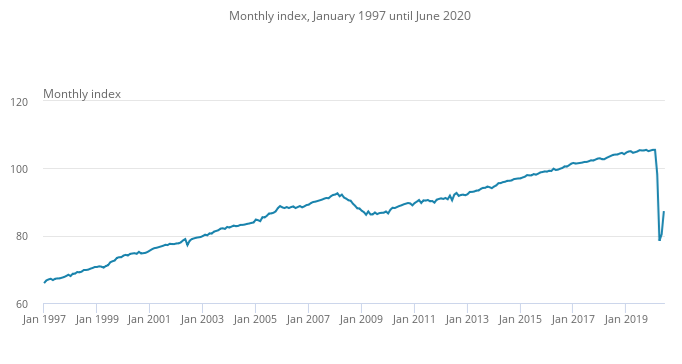Negative interest rates was one of the first things I wrote about in May, and now it looks like it could finally become a reality.
This week, Sam Woods, deputy governor of the Bank of England’s Prudential Regulation Authority (the body that regulates financial services in the UK), wrote to the CEOs of all UK banks and building societies to ask whether they’re ready for a zero or negative bank rate.
To be clear, the Bank of England (BoE) is not saying it will drop interest rates further, only that it is considering it alongside other tools in its arsenal. In fact, it’s very clear in that, and points out it “is not asking firms to begin taking steps to ensure they are operationally ready to implement a negative bank rate”.
However, in writing to all banks and building societies, it is the clearest indication that the BoE is seriously considering the move.
The CEOs are asked to respond with details of whether they’re ready for “a zero bank rate, a negative bank rate, or a tiered system of reserves remuneration” as well as what they would need to do to “prepare for the implementation”.
In other words, what do we need to do to make this happen – and be honest!
The responses are due 12 November 2020.
What it means for you…
As I mentioned back in May, there is precedent for negative interest rates and one of the first things that will happen is that interest rates for savings products will drop across the board.
They have already, in part because of the sustained low BoE rate, but don’t be surprised to see them fall further.
It means if you’re a saver, and you’re not planning to use your money for a while, now might be the time to look for a fixed-rate savings account so you can lock in the existing interest rate.
Keep in mind that you should have enough “cash savings” for between three to six months of living expenses that you can easily access.
My second prediction in May was that there may be more and cheaper mortgages – but it looks like that will only be true for those in an excellent financial position.
The BoE’s Credit Conditions Survey for the third quarter of this year (the three months to the end of August) suggested that the criteria for getting a mortgage has been tightened, and lenders expect this to be tightened even further in the fourth quarter (the three months to the end of November).
The same survey also suggested that mortgages are expected to be more costly in the coming months.
That said, there’s a growing trend for lenders to issue limited time and limited number mortgages to those who might normally find it harder to find a suitable deals, which may well be an indicator of how the market will work in future.




